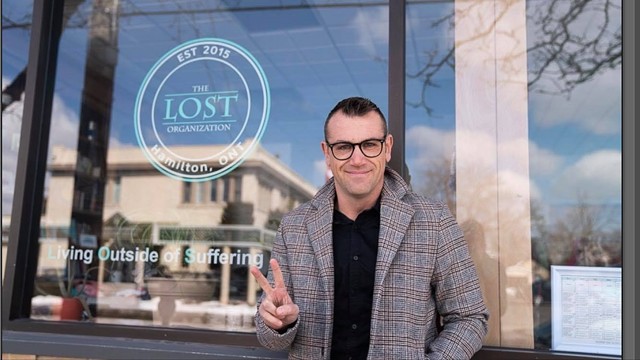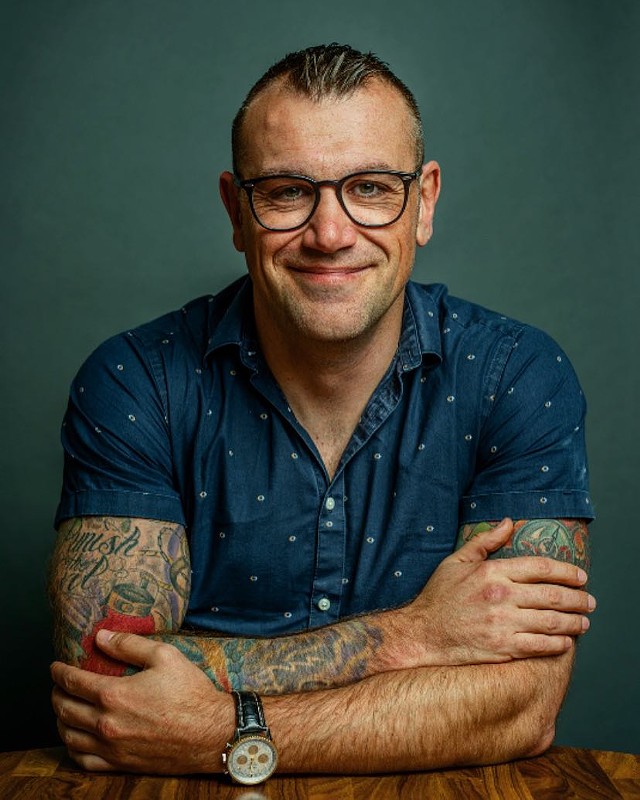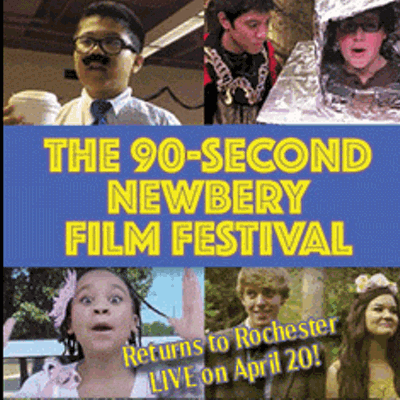click to enlarge


PHOTO PROVIDED BY CLINT YOUNGE
Clint Younge, a trailblazer in the Canada's cannabis industry, outside of LOST, a mental health organization in Hamilton, Ontario, that he championed as the CEO of MMJ Canada.
[
{
"name": "500x250 Ad",
"insertPoint": "5",
"component": "15667920",
"parentWrapperClass": "",
"requiredCountToDisplay": "1"
}
]
Word that New York legislators are serious about implementing a social equity component to their plan to legalize pot has me thinking a lot about Clint.
Clint Younge is my stepbrother. Or rather, he was my stepbrother. Neither of us know how to classify our relationship anymore. My father was married to his mother for a long time. We grew up together.
He is also a pioneer in Canada’s cannabis industry. In recent years, he has traveled the world as a cannabis consultant, addressed Parliament on behalf of the industry, and made a small fortune in the process.
Recently, he was interviewed by Forbes magazine about the cannabis market in Europe. Clint, 39, has been on the cover of several pot-related publications.
To know him like I did, though, you wouldn’t have ever thought he had it in him.
We met when I was 12 and Clint was 6. He was the brother I never had and a bit of a scamp. He was mischievous and clever, but forever in trouble — at first with our parents, then his teachers, and eventually the law.
I remember visiting him while he was doing a short stretch for grand larceny at the Barton Street Jail, a maximum-security provincial detention facility in our hometown of Hamilton, Ontario. He was 17 at the time, but behind the glass partition he looked beat down and much older.
“I was stealing cars just to get around,” he recalled in a recent phone conversation from his home in British Columbia. “That’s how much of a dummy I was.”
Clint was no dummy, but you could have been forgiven for thinking of him that way at the time. He liked pot and was cast off by many as a “screw up” and a “stoner.” He was an admittedly pitiful thief, too.
He once landed in Barton Street for 14 days for stealing a head of lettuce from a supermarket. There was a whole story about how he was just trying to help a friend get something to eat, but in the end, he got locked up for iceberg lettuce. That and his unresolved rap sheet.
“The guys in jail were like, ‘You’re in here for stealing lettuce?’” he said.
Clint had mental and emotional problems, some of which he came by naturally and some of which were exacerbated by a tumultuous home life and the crowd with which he ran. Our parents tried straightening him out with doctors, medications, and military school. None of it worked.
A couple years after I had visited him in jail, he was a high school dropout and homeless. He was estranged from our parents, whose marriage was crumbling anyway. I had begun my career in newspapers and gave him $500 and a one-way bus ticket out west.
My hope was that he would go to the Alberta oil sands, where it seemed anyone could get a job, and make a life for himself. Clint ended up in the resort town of Banff.
He would bum around the western provinces for several years, all the while partaking in his favorite pastime and the only thing that seemed to hold his interest — pot. He smoked it. He ate it. He bought it. He sold it.
“I loved the plant,” Clint said.
By his late 20s, after learning to manage his mental illness — with marijuana, of course — he got serious about cannabis. He found a series of jobs, each with more responsibility than the last, at a string of black market medical cannabis dispensaries that were popping up all over Canada at the time.
Although medical marijuana had been approved in Canada in 1999, it was only available by mail, and regulations limited the number of growers to a handful of conglomerates whose product, patients complained, was inferior to that found on the black market.
Clint eventually became the chief executive officer of the largest chain of these black market operations and opened shops in Ontario.
His shops, like others, were in a constant tug-of-war with authorities. In 2016, police raided one of his stores in Hamilton, seizing $75,000 worth of marijuana, and charged Clint with possession for the purpose of trafficking.
The shop reopened within the week and the game of cat-and-mouse continued until the country legalized recreational pot in 2018 and, eventually, shut down the dispensaries for good and replaced them with government-run operations that, consumers complain, sell inferior pot.
Clint never did a day in prison. His trial was delayed until after legalization and he ended up pleading guilty in 2019 to possession charges and was sentenced to pay a $7,000 fine. But his criminal record precluded him from immediately entering the legal market.
On the outs in Canada, he was lured by a Swiss hemp company to oversee its operations there, which he did until recently.
That’s why Clint comes to mind for me when I hear New York legislators talking about making it a priority to help people who have been prosecuted for marijuana-related crimes get into the legal game.
Clint is not the posterchild for the type of social equity envisioned by New York lawmakers. He’s white and he doesn’t come from a neighborhood ravaged by the war on drugs. But he is not unlike a lot of people who were cast off as “stoners” and criminals because of their commitment to a drug that is now legal. The legal cannabis market dismisses them again at its own peril.
Who better than them, who know the product and who know the consumer, who have made their living on the black market, to make the legal market thrive?
“I’ve been in cannabis for 13 years now in the gray or regulated market,” Clint said. “And I’ve been in the black market and playing around with cannabis since I was 15.”
The black market, which Clint calls the “legacy market,” is thriving in Canada, and it will in New York if the state doesn’t make it easy for people with the right skills to get into the legal market. As of last year, half of all pot sales in Canada were black market, according to Statistics Canada.
Clint pointed to the groundbreaking cannabis social equity program in Oakland, California, as an example of what New York, or Canada for that matter, ought to be doing.
“In Oakland, they said, ‘If you were charged with a cannabis crime, you’ve got dibs on the legal market,’” Clint said. “Canada tried to eliminate all the experts and it backfired completely.”
Canada is slowly acknowledging the error of its ways. The country recently began issuing micro-cultivation licenses for small-scale growing operations, where the barrier to get in on the action is much less costly for legacy growers and sellers.
“You need the legacy players,” Clint said. “If you don’t get people into the system from the past, all you’ll get is crap. People would rather go see Mike in Apartment B if he’s got a good bag of weed than a legal shop with garbage.”
David Andreatta is CITY's Editor. He can be reached at [email protected].
Clint Younge is my stepbrother. Or rather, he was my stepbrother. Neither of us know how to classify our relationship anymore. My father was married to his mother for a long time. We grew up together.
He is also a pioneer in Canada’s cannabis industry. In recent years, he has traveled the world as a cannabis consultant, addressed Parliament on behalf of the industry, and made a small fortune in the process.
Recently, he was interviewed by Forbes magazine about the cannabis market in Europe. Clint, 39, has been on the cover of several pot-related publications.
To know him like I did, though, you wouldn’t have ever thought he had it in him.
We met when I was 12 and Clint was 6. He was the brother I never had and a bit of a scamp. He was mischievous and clever, but forever in trouble — at first with our parents, then his teachers, and eventually the law.
I remember visiting him while he was doing a short stretch for grand larceny at the Barton Street Jail, a maximum-security provincial detention facility in our hometown of Hamilton, Ontario. He was 17 at the time, but behind the glass partition he looked beat down and much older.
“I was stealing cars just to get around,” he recalled in a recent phone conversation from his home in British Columbia. “That’s how much of a dummy I was.”
Clint was no dummy, but you could have been forgiven for thinking of him that way at the time. He liked pot and was cast off by many as a “screw up” and a “stoner.” He was an admittedly pitiful thief, too.
He once landed in Barton Street for 14 days for stealing a head of lettuce from a supermarket. There was a whole story about how he was just trying to help a friend get something to eat, but in the end, he got locked up for iceberg lettuce. That and his unresolved rap sheet.
“The guys in jail were like, ‘You’re in here for stealing lettuce?’” he said.
Clint had mental and emotional problems, some of which he came by naturally and some of which were exacerbated by a tumultuous home life and the crowd with which he ran. Our parents tried straightening him out with doctors, medications, and military school. None of it worked.
A couple years after I had visited him in jail, he was a high school dropout and homeless. He was estranged from our parents, whose marriage was crumbling anyway. I had begun my career in newspapers and gave him $500 and a one-way bus ticket out west.
My hope was that he would go to the Alberta oil sands, where it seemed anyone could get a job, and make a life for himself. Clint ended up in the resort town of Banff.
He would bum around the western provinces for several years, all the while partaking in his favorite pastime and the only thing that seemed to hold his interest — pot. He smoked it. He ate it. He bought it. He sold it.
“I loved the plant,” Clint said.
By his late 20s, after learning to manage his mental illness — with marijuana, of course — he got serious about cannabis. He found a series of jobs, each with more responsibility than the last, at a string of black market medical cannabis dispensaries that were popping up all over Canada at the time.
Although medical marijuana had been approved in Canada in 1999, it was only available by mail, and regulations limited the number of growers to a handful of conglomerates whose product, patients complained, was inferior to that found on the black market.
Clint eventually became the chief executive officer of the largest chain of these black market operations and opened shops in Ontario.
His shops, like others, were in a constant tug-of-war with authorities. In 2016, police raided one of his stores in Hamilton, seizing $75,000 worth of marijuana, and charged Clint with possession for the purpose of trafficking.
The shop reopened within the week and the game of cat-and-mouse continued until the country legalized recreational pot in 2018 and, eventually, shut down the dispensaries for good and replaced them with government-run operations that, consumers complain, sell inferior pot.
Clint never did a day in prison. His trial was delayed until after legalization and he ended up pleading guilty in 2019 to possession charges and was sentenced to pay a $7,000 fine. But his criminal record precluded him from immediately entering the legal market.
On the outs in Canada, he was lured by a Swiss hemp company to oversee its operations there, which he did until recently.
That’s why Clint comes to mind for me when I hear New York legislators talking about making it a priority to help people who have been prosecuted for marijuana-related crimes get into the legal game.
Clint is not the posterchild for the type of social equity envisioned by New York lawmakers. He’s white and he doesn’t come from a neighborhood ravaged by the war on drugs. But he is not unlike a lot of people who were cast off as “stoners” and criminals because of their commitment to a drug that is now legal. The legal cannabis market dismisses them again at its own peril.
Who better than them, who know the product and who know the consumer, who have made their living on the black market, to make the legal market thrive?
“I’ve been in cannabis for 13 years now in the gray or regulated market,” Clint said. “And I’ve been in the black market and playing around with cannabis since I was 15.”
The black market, which Clint calls the “legacy market,” is thriving in Canada, and it will in New York if the state doesn’t make it easy for people with the right skills to get into the legal market. As of last year, half of all pot sales in Canada were black market, according to Statistics Canada.
Clint pointed to the groundbreaking cannabis social equity program in Oakland, California, as an example of what New York, or Canada for that matter, ought to be doing.
“In Oakland, they said, ‘If you were charged with a cannabis crime, you’ve got dibs on the legal market,’” Clint said. “Canada tried to eliminate all the experts and it backfired completely.”
Canada is slowly acknowledging the error of its ways. The country recently began issuing micro-cultivation licenses for small-scale growing operations, where the barrier to get in on the action is much less costly for legacy growers and sellers.
“You need the legacy players,” Clint said. “If you don’t get people into the system from the past, all you’ll get is crap. People would rather go see Mike in Apartment B if he’s got a good bag of weed than a legal shop with garbage.”
David Andreatta is CITY's Editor. He can be reached at [email protected].














